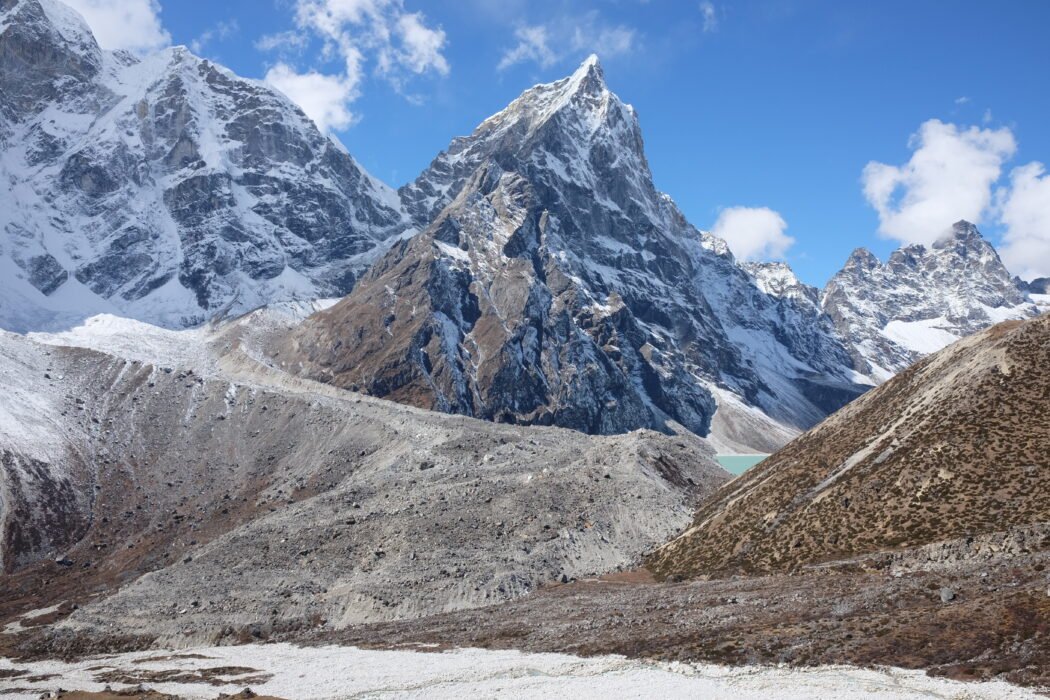Share This:

Everest Base Camp Trek Permit
Everest Base Camp is among the most popular treks that lead to the base camp of the most awe-inspiring mountain in the world, Mt. Everest (8848.86m). The whole area of Everest is located within the Khumbu region of Nepal. It is under the Khumbu Pasang Lhamu Rural Municipality. You must have Everest Base Camp Trek Permit to reach the base camp of the Mt. Everest.
There are a variety of packages that relate with Everest region that range from various numbers of days to a single digit day. Everest Base Camp trek, Everest view trek, Gokyo lake trek and Three High Passes Trek are the most popular trekking in everest. These treks all require permits.
If you’re planning an Helicopter trip to Everest and back, then do not require a trekking permit.
We’ll now discuss the permits needed to trek Everest Base Camp. You need to have two permit for trekking in Khumbu region. These are:
The Sagarmatha Conservation Area National Permit
Sagarmatha National Conservation Area is one of the most well-known UNESCO Heritage Sites of Nepal with a natural and cultural significance. The area is also an site of heritage significance that is situated at the highest point in the world. This is the permit that we need to have Everest Base Camp trek.
The area is 1,148 square kilometers with the Himalayas , including Mt. Everest having the border with Tibet in the northern part.
Sagarmatha National Conservation Area was designated as the nation’s first park. It was designated a Heritage Site in 1979 AD.
The permit required for trekkers is to be admitted into Sagarmatha National Park which can be obtained at the Tourism Office in Kathmandu or at the entry office in Monjo.
The Monjo office examines every trekker who has the permit and maintains the entry and exit dates and departure dates. The office assists trekkers with information on the culture, life style of people, flora and fauna of the whole Khumbu region. It also has a gallery of various images and information.
Khumbu Pasang Lhamu Rural Municipality Permit
It is a new kind of permit that must be carried when entering the Khumbu region. This is because it was decentralized in the nation in 2018 AD. The Khumbu region was designated as an Khumbu Pasang Lahmu Rural Municipality that is a local authority.
Trekkers must pay for the entry permit at Khumbu Pasang Lhamu Rural Municipality when they arrive in the Lukla airport. If you are traveling to Lukla and planning to hike out of Jiri and Salleri you can apply for the permit at Monjo.
It is important to ensure that there isn’t any alternate office to Khumbu Pasang Lhamu Rural Municipality located in Kathmandu. Therefore, trekkers who make making payment in Nepalese currency, Rs 2000, could be granted this permit either in Lukla or Monjo.
Additional Permits are required to Everest Base Camp Trek
If you’re flying to Lukla it is necessary to carry two licenses i.e. Sagarmatha Conservation Area Permit as well as Khumbu Pasang Lhamu Rural Municipality Permit to go on Everest Base Camp Trek.
If you plan to hike to the end of Jiri to Salleri then you require an additional permit, which is Gaurishankar Conservation Area Permit.
When hiking in the direction of Jiri or Salleri the trekkers have to go through Gaurishankar Conservation Area. The permit is available in Kathmandu at the Nepal Tourism Board Office upon the payment of Nepalese currency, Rs 3000.
What are the required documents to get Everest Base Camp Permits to Trek?
To get these permits for trekking, you need your passport information together with photos and local currency.
If you plan your trip with a locally established trek company in Nepal that is legally registered. This type of company is authorized to obtain all the permits you require along with evidence of their legal documents.
The payment of these permit charges should be made paid in Nepalese currency. Therefore, ensure that you have local currency with you when you travel to obtain necessary permits.
Note: There is no other method to avoid the point where you check your permits. It could result in the crime of moral infraction and could be removed from the trek or impose penalties, including the cost of all necessary permits.
